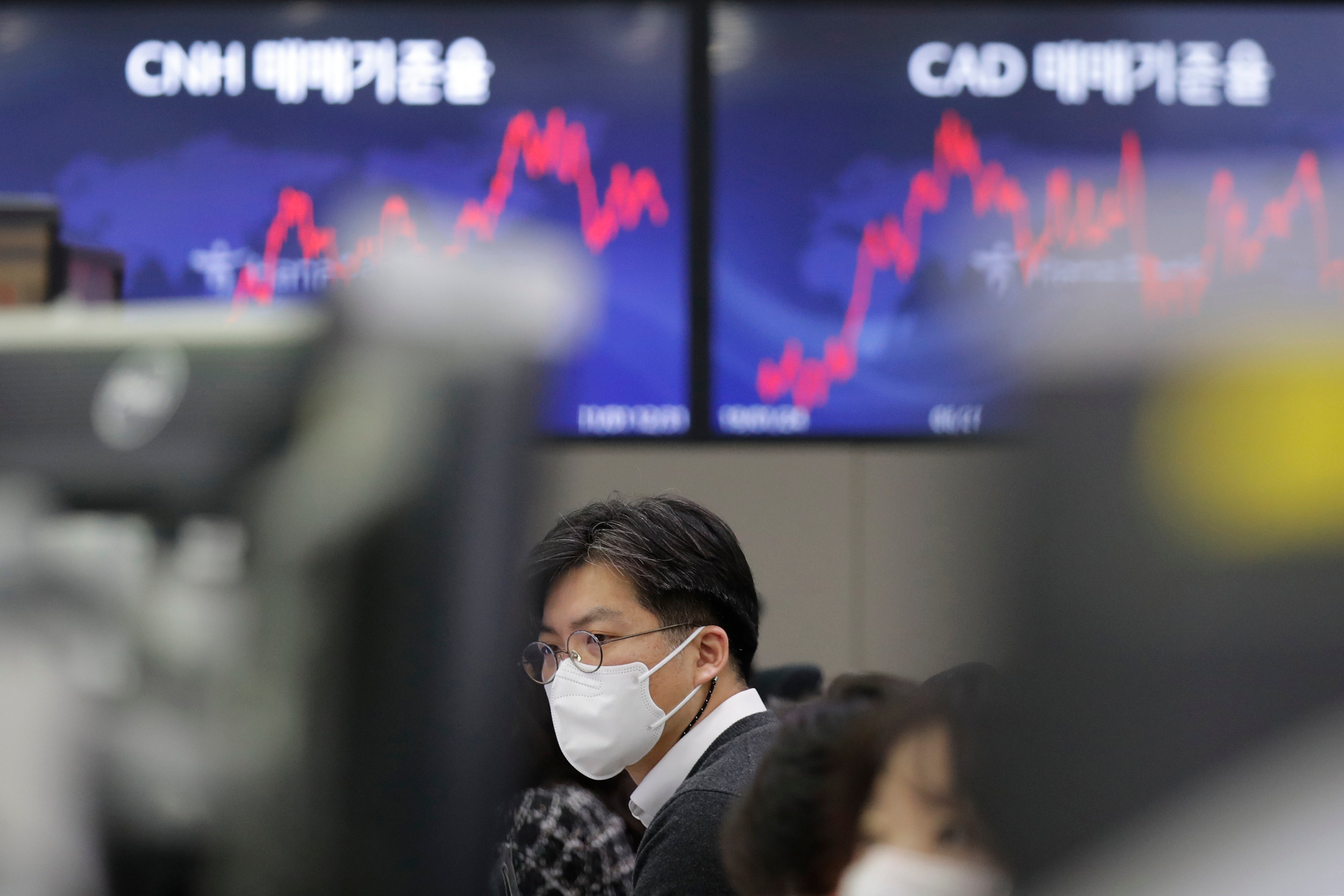Asian stocks fall after Wall St rebounds from losses
Asian stock markets have fallen after Wall Street rebounded from its biggest loss in nearly three months

Asian stock markets fell Friday amid worries about rising coronavirus cases, Wall Street volatility and U.S. economic aid plans.
Shanghai, Tokyo, Hong Kong and Seoul all retreated.
Overnight, Wall Street's benchmark S&P 500 index gained 1%, recovering some of its loss from the previous day's 2.6% fall after American unemployment data were better than expected.
U.S. markets were roiled by a spate of trading by small investors of video game vendor GameStop that hurt hedge funds that bet the stock would fall.
Elsewhere, investors were watching virus infection spikes in Europe and Asia, renewed travel curbs and negotiations in Washington over President Joe Biden s proposed $1.9 trillion economic aid package.
“We are still moving towards a recovery from the pandemic, just a heck of a lot bumpier than anyone had expected,” said Stephen Innes of Axi in a report. “Yet the recent stock market washout may have put the path forward on a cleaner footing.”
The Shanghai Composite Index lost 0.5% to 3,487.45 and the Nikkei 225 in Tokyo shed 1.9% to 27,671.79. The Hang Seng in Hong Kong sank 0.5% to 28,409.72.
The Kospi in Seoul tumbled 2.7% to 2,985.55 and the S&P-ASX 200 in Sydney lost 0.6% to 6,607.40.
India's Sensex opened up 0.2% at 46,974.36. New Zealand advanced while Southeast Asian markets declined.
The Japanese government reported December factory output fell 1.6% from the previous month in the second straight decline.
On Wall Street, the S&P 500 rose to 3,787.38, escaping the red for the year. Its decline Thursday was its biggest since October.
Investors watched wild swings in GameStop, which skidded 44.3%, cinema chain AMC and other stocks that have become targets for online traders.
Several fell after Robinhood and other trading platforms restricted trading, causing an outcry by some customers.
The Dow Jones industrial average gained 1% to 30,603.36. The Nasdaq composite added 0.5% to 13,337.16.
AMC Entertainment fell 56.6%, after rising nearly 600% this month.
More than 100 companies in the S&P 500 are due to report results for the final quarter of 2020.
Apple fell 3.5% after the iPhone maker posted a record quarterly profit, helped by big sales of iPhones and Apple Watches. Apple was conservative in its full-year outlook for 2021, citing the pandemic and economic uncertainty.
Hopes are high for Biden's aid package, but worries grew that the plan might be scaled back under pressure from Republican legislators.
In energy markets, benchmark U.S. crude lost 31 cents to $52.03 per barrel in electronic trading on the New York Mercantile Exchange. The contract lost 51 cents on Thursday to close at $52.34. Brent crude, the price standard for international oils, shed 9 cents to $55.01 per barrel in London.
The dollar rose to 104.49 Japanese yen from Thursday's 104.24 yen. The euro declined to $1.2099 from $1.2132.
Bookmark popover
Removed from bookmarks